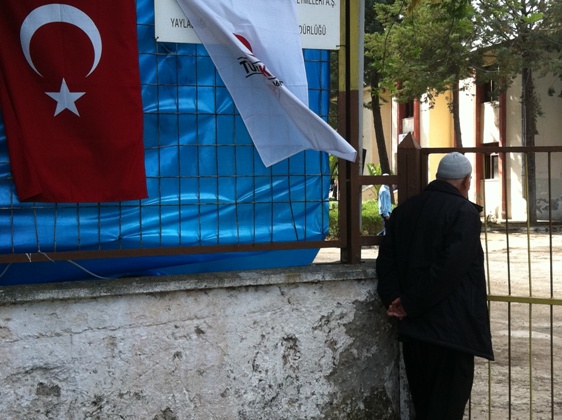Rabbi David Wolpe of Los Angeles’ Conservative synagogue Sinai Temple once said during a Friday night sermon, “People don’t think about you as much as you think people think about you.”
It might thus come as a shock to some readers that amid the campaign rallies leading up to Turkey’s parliamentary elections on June 12th, not a single Palestinian flag was waved among the crowds, nor was an anti-Israel banner held or slogan chanted. Turkey’s economy, its constitution, the rights of its women, and the rise of nationalism were on the agenda. Israel and Palestine were not.
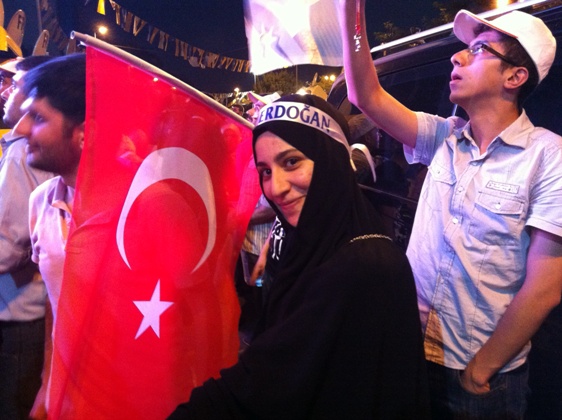
Riding back to my hotel from Istanbul’s central Taksim Square, I was asked by my 30 year-old computer salesman-turned-taxi driver, Mete Soner Seylum, where I am from. When I respond, he says, “The Israelis own everything.” Curious, I ask him to qualify his declaration. “The Israelis? Or the Jews?” “Ah, the Jews,” he responds. “The Jews own everything.” His views on Israel, its domestic and/or foreign policies and its treatment of the Palestinians just happen to be limited to a socio-economic stereotype. But oddly enough, it was followed by a compliment. “The Israelis are a very smart people,” he adds. “They always help each other whenever one of them needs it. Not like us here in Turkey.”
Flattery the first part may be, but accurate the last part is not. Turkey has recently displayed a true sense of altruism, absorbing thousands of Syrian refugees who have crossed its southern border. And the people of Turkey reflect the policy of its government. In the sleepy Turkish village of Guvecci, in Hatay Province near the Syrian frontier, I come across a number of Syrian refugees who have fled clashes in Jisr al Shurghour in Northwest Syria. They are aided by villagers who give them whatever little they have: bread, water, diapers, and a glass of ayran (a local drink that mixes water and yoghurt, which I am invited to sample, as well). Some take the goods and return over the border back to Syria, knowing that despite having fled, their families need the supplies.
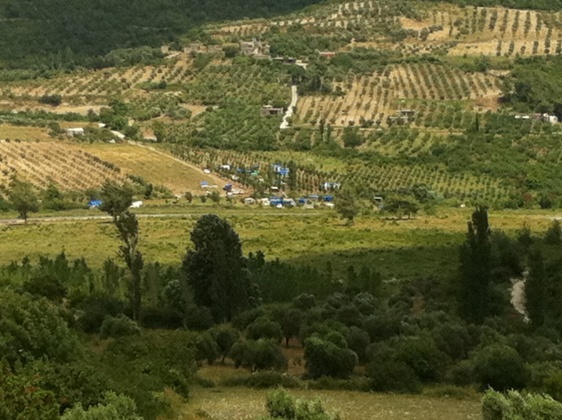
I meet Mohammad, a 21 year old Syrian who speaks excellent English. He is from Jisr al Shurghour but had left the city in recent years to go study at university. He says he witnessed the confrontations between residents of his city and the military earlier this month, and adds that two members of his family were shot dead, something obviously I am unable to confirm. He is in Guvecci only for the day, looking for bread to take back home to his extended family of forty people. But he heads back empty-handed, this time unable to find any and afraid they will be worried he has been gone too long. He intends to return to Guvecci the following day, but I do not see him again.
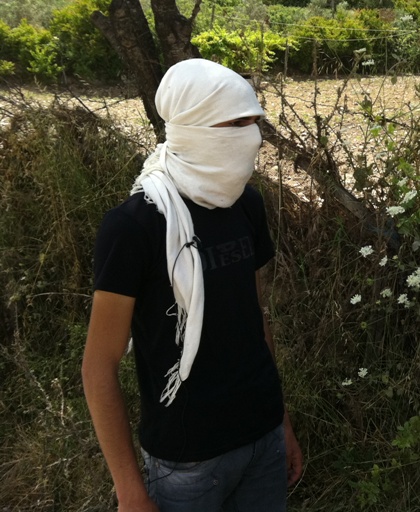
The road that leads down the hill from Guvecci to the border is a mixture of dirt, gravel and pavement. It is sometimes sheltered by towering trees and bushes that line the sides of trails, which also provide a cloak of cover from the sight of a Turkish military compound hovering over the hills. But in most parts, the path is very exposed to the summer sun’s rays. Thousands have come into Turkey this way, and it is likely as the violence continues, thousands more will follow.
For now, the Turkish government – on the heels of Prime Minister’s Recep Tayyip Erdogan’s popular re-election for a third-term – says it will continue to absorb them, even though it has faced criticism for closing off the refugees (those it manages to detain) from the outside world. And the refugees appear to be grateful to their hosts, at one point breaking into abrupt protest and chanting, “Erdogan! Erdogan!”
But it is unclear whether this policy will remain unchanged if, for example, Syrian President Bashar al-Assad launches attacks on Kurds in Northern Syria, who in turn will then likely flee to join the Kurds in Southeastern Turkey. In the elections, Erdogan took a small but significant beating from Turkey’s Kurdish politicians who, in a work-around to Turkey’s high (and undemocratic, many will argue) ten-percent parliamentary threshold, managed to secure thirty-two seats. The last thing Erdogan would have wished to deal with as he prepared to write a new constitution for the country is a strong, Kurdish bloc. And while he may not want to see more ethnic Kurds arriving in Turkey, even less desirable will be his lose all international credibility if he refuses their refuge while allowing it for others.
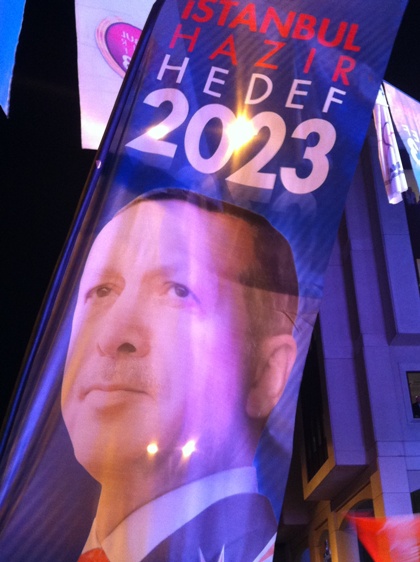
Naturally, for Erdogan and even for Turkey as a whole, oppression in Syria has become a more crucial and urgent rallying call than the suffering in Gaza, as reflected in the current debate over the “Freedom Flotilla II” (scheduled to set sail later this month). Large demonstrations are now frequently held in various Turkish cities, but the protestors are calling for the end of Assad, not Netanyahu.
Telling Israelis that I was heading to Turkey drew a strange reaction, one I might have expected were I heading to Lebanon or Iran. But beyond Syria, Erdogan has lots to worry about: Libya, the EU, an aging military hardware, economic default in nearby Greece, and growing economic disparity among his own population. “Ending the occupation” and the latest episode in the love-hate relationship of Hamas and Fatah are not his top priority, even if he tried to get involved in the past. Grandstanding in front of Israeli leaders, as he did in Davos, has taken a backseat. Let’s face it: he doesn’t think about us as much as much as we think he thinks about us.

